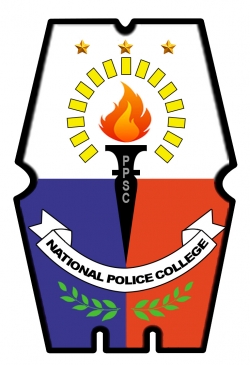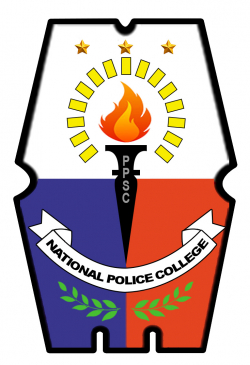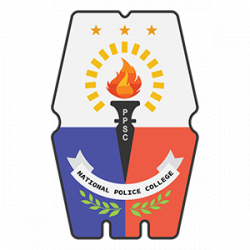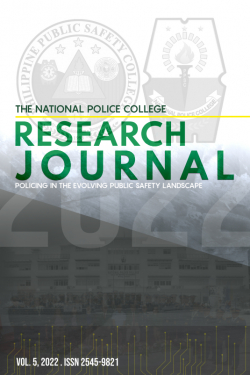STATUS OF THE PHILIPPIE NATIONAL POLICE SCENE OF THE CRIME OPERATION (SOCO) AND UNDERWATER FORENSIC INVESTIGATION: BASIS FOR AN ACTION PLAN

Type
Thesis
Authors
PLTCOL HERARDO G HERMOSILLA PLTCOL ROBERT G LAYADOR ( PLTCOL ERNESTO C NIDUAZA, JR )
Category
PSOSEC
[ Browse Items ]
Publication Year
2023
Tags
Abstract
The qualitative descriptive study determined the status of the Scene of the Crime Operation (SOCO) of the Philippines National Police Forensic Group (PNP-FG) relative to underwater crime scene investigation, and tried to find out the issues, concerns, challenges, and gaps in the discharge of their mandated tasks, and craft and submit and action plan for the organization and training of PNP personnel for scientific and expert underwater crime scene investigations (UCSI)
Three data-generation tools, namely: survey questionnaire, key informants interview (KII), and focused group discussion (FGD), with three different data sources were used to comply with the triangulation requirement of qualitative studies.
Data gathering through the researcher-made survey questionnaire were tabulated, collated, analyzed, and interpreted. The Mean – statistically computed from the scores of the researcher-made 5-Point Likert Scale – was analyzed and interpreted as having a Highly Functional SOCO underwater forensic operations at the PNP Forensic Group.
Answers of the key informants (KII) on the interview schedule as well as the proceedings of the focused group discussions yielded qualitative data which were transcribed, thematically categorized, and analyzed. On the whole, the generated data negated the survey findings of a “Highly Functional” underwater scene of the crime operations. In fact, there was no group or theme of the SOCO with forensic capabilities and expertise in conducting investigations on submerged or underwater crime scene and evidentiary materials retrieval.
Lack of budget of the PNP FG SOCO hindered the conduct of training on police scuba diving and of underwater crime scene operations and investigations, and it also lacked forensic apparatus and equipment for submerged or underwater evidentiary materials. Also, changing of leadership and varied advocacies and thrust of the Forensic Group contribute further to the lack of personnel to conduct forensic operation and examination on submerged underwater evidentiary materials and processing examinations and evidence processing which could be admissible in courts.
Further, it was found that the PNP Maritime Group on which the Forensic Group is mandated to support discharged mainly scuba diving on rescue and retrieval operations of human victims during calamities and disasters that hit parts of the country. This Maritime Group was also found lacking in expertise knowledge to conduct forensics even if some have participated in trainings by foreign countries.
As mentioned, even the Maritime Group were found wanting of skills enforcements in underwater forensic investigation as they had been mainly discharging rescue and retrieval operations of human victims in crimes committed on shallow waters, terrestrial and open spaces only.
Furthermore, the study found that previous proposals for organizing, training, and professionalizing underwater crime scene investigators were proposed and submitted to the appropriate national government agencies and PNP Training units (PNP Training Service, Maritime Group and Coast Guard), however, for lack of budget, these were not realized; even proposals for the training personnel for police scuba diving course were not implemented.
Also, constant change in the agencies’ leadership with varied advocacies, and the lack of political will by stop decision-makers were also issues and challenges.
As such, it was concluded that indeed there is a need for the organization of a functional and professional underwater investigators and experts at the PNP FG national headquarters as well as the Regional Forensic Units (RFU).
And recommendations be trained according to internationally accepted standards and qualifications crimes committed in underwater environments and also experts in performing forensic examinations and analysis so that they are task-ready as mandated, and could work alongside and effectively as a support to the PNP Maritime Group and other law enforcement investigating agencies.
Furthermore, both the PNP FG and the PNP Maritime Group were recommended to collaborate with the Philippine Coast Guard, and the Philippine Navy, Philippine Drug Enforcement Agency (PDEA), among others, for the training and enhancement interventions, so that, collectively, they could become scientific and coordinated in their perspective discharge of functions and duties, especially forensic procedures and protocol-based crime scene operations. Forensics is important not only on examining human victims but also on processing evidentiary materials acceptable in courts, for maintaining public safety and order but also for appropriate dispensation of justice, and for protecting and safeguarding national interest and Philippine sovereignty.
Therefore, an Action Plan was drafted and hereby proposed and submitted so that the needed administrative enactments and other bureaucratic actions be undertaken to attain effective, efficient, and protocol-based crime scene operations and forensic examinations not only for crimes committed on-land and open spaces but also crimes and cases committed in submerged or underwater environments.
Three data-generation tools, namely: survey questionnaire, key informants interview (KII), and focused group discussion (FGD), with three different data sources were used to comply with the triangulation requirement of qualitative studies.
Data gathering through the researcher-made survey questionnaire were tabulated, collated, analyzed, and interpreted. The Mean – statistically computed from the scores of the researcher-made 5-Point Likert Scale – was analyzed and interpreted as having a Highly Functional SOCO underwater forensic operations at the PNP Forensic Group.
Answers of the key informants (KII) on the interview schedule as well as the proceedings of the focused group discussions yielded qualitative data which were transcribed, thematically categorized, and analyzed. On the whole, the generated data negated the survey findings of a “Highly Functional” underwater scene of the crime operations. In fact, there was no group or theme of the SOCO with forensic capabilities and expertise in conducting investigations on submerged or underwater crime scene and evidentiary materials retrieval.
Lack of budget of the PNP FG SOCO hindered the conduct of training on police scuba diving and of underwater crime scene operations and investigations, and it also lacked forensic apparatus and equipment for submerged or underwater evidentiary materials. Also, changing of leadership and varied advocacies and thrust of the Forensic Group contribute further to the lack of personnel to conduct forensic operation and examination on submerged underwater evidentiary materials and processing examinations and evidence processing which could be admissible in courts.
Further, it was found that the PNP Maritime Group on which the Forensic Group is mandated to support discharged mainly scuba diving on rescue and retrieval operations of human victims during calamities and disasters that hit parts of the country. This Maritime Group was also found lacking in expertise knowledge to conduct forensics even if some have participated in trainings by foreign countries.
As mentioned, even the Maritime Group were found wanting of skills enforcements in underwater forensic investigation as they had been mainly discharging rescue and retrieval operations of human victims in crimes committed on shallow waters, terrestrial and open spaces only.
Furthermore, the study found that previous proposals for organizing, training, and professionalizing underwater crime scene investigators were proposed and submitted to the appropriate national government agencies and PNP Training units (PNP Training Service, Maritime Group and Coast Guard), however, for lack of budget, these were not realized; even proposals for the training personnel for police scuba diving course were not implemented.
Also, constant change in the agencies’ leadership with varied advocacies, and the lack of political will by stop decision-makers were also issues and challenges.
As such, it was concluded that indeed there is a need for the organization of a functional and professional underwater investigators and experts at the PNP FG national headquarters as well as the Regional Forensic Units (RFU).
And recommendations be trained according to internationally accepted standards and qualifications crimes committed in underwater environments and also experts in performing forensic examinations and analysis so that they are task-ready as mandated, and could work alongside and effectively as a support to the PNP Maritime Group and other law enforcement investigating agencies.
Furthermore, both the PNP FG and the PNP Maritime Group were recommended to collaborate with the Philippine Coast Guard, and the Philippine Navy, Philippine Drug Enforcement Agency (PDEA), among others, for the training and enhancement interventions, so that, collectively, they could become scientific and coordinated in their perspective discharge of functions and duties, especially forensic procedures and protocol-based crime scene operations. Forensics is important not only on examining human victims but also on processing evidentiary materials acceptable in courts, for maintaining public safety and order but also for appropriate dispensation of justice, and for protecting and safeguarding national interest and Philippine sovereignty.
Therefore, an Action Plan was drafted and hereby proposed and submitted so that the needed administrative enactments and other bureaucratic actions be undertaken to attain effective, efficient, and protocol-based crime scene operations and forensic examinations not only for crimes committed on-land and open spaces but also crimes and cases committed in submerged or underwater environments.
Number of Copies
1
| Library | Accession No | Call No | Copy No | Edition | Location | Availability |
|---|---|---|---|---|---|---|
| NPC Library | 676478 | 1 | Yes |



